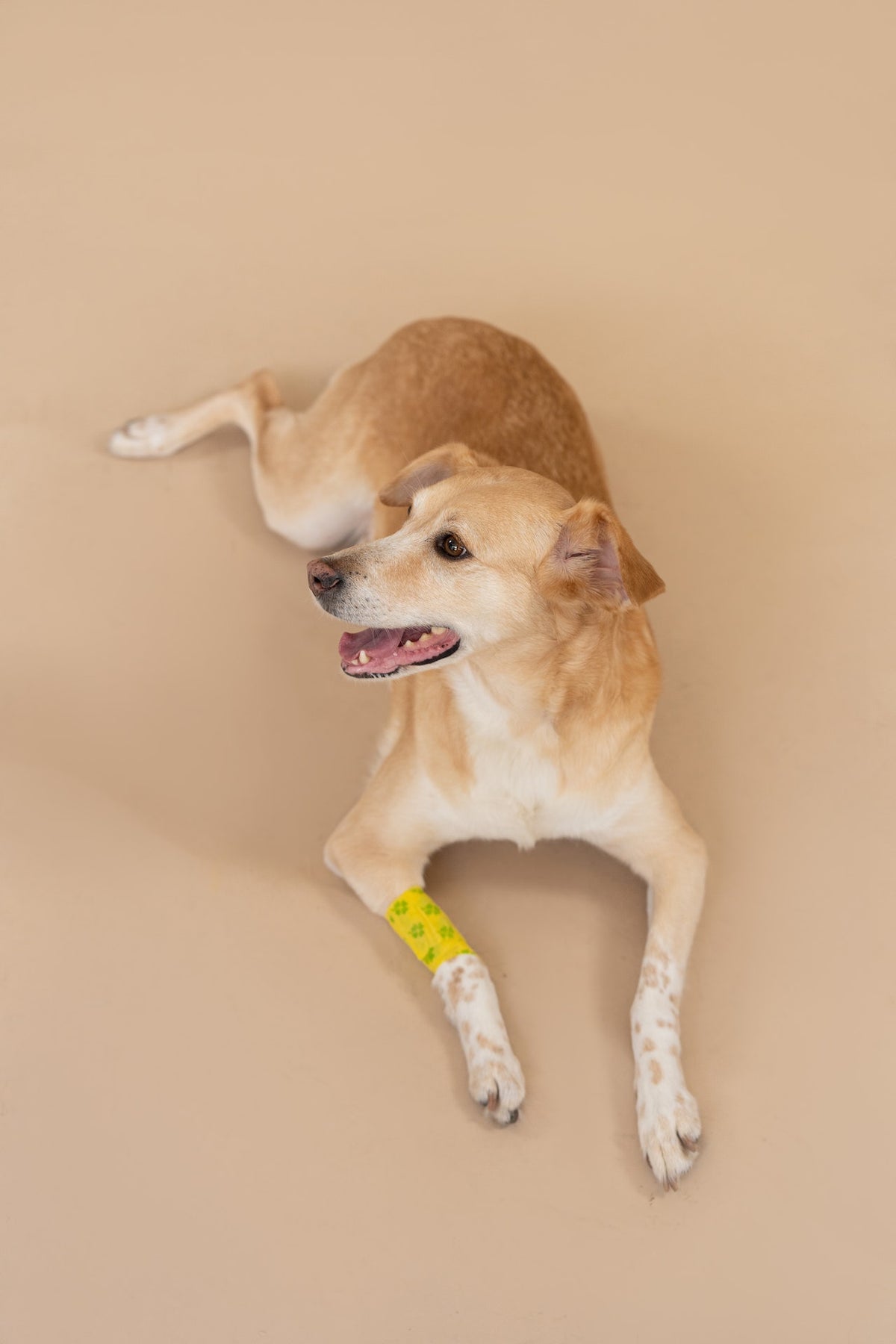
You love your dog to pieces but you must admit, they can be clumsy sometimes. Accidents happen and sometimes your pooch is the victim (or likely instigator) of a minor injury.
Dogs are prone to a variety of injuries, from small scrapes and cuts to bigger wounds that may require medical attention. If you’re a pet owner, knowing how to properly tend to your pup’s wound is essential in ensuring their speedy recovery.
In most cases, minor wounds can heal without medical intervention, while more serious injuries or chronic wounds should be treated by a veterinarian. Before treating any wound at home, it's important to evaluate the injury and consult with your vet if needed.
Although many minor scrapes and wounds will heal on their own with proper wound care, keep an eye out for signs of infection. These include redness that spreads beyond the edges of the wound, discharge or pus coming from the wound, bad odor, and increased swelling or pain around the wound site.
If your dog is exhibiting any of these signs, contact your vet as soon as possible. Your vet may prescribe antibiotics to fight infection or other medications for pain relief.
More serious dog wounds will need the attention of a veterinarian, especially if they become infected. It is important to be mindful of these types of wounds as they can cause complications if not treated quickly.
If your pup experiences any of the above injuries, contact your vet immediately.
If you have determined that your pup's wound can be treated at home, here are
some tips on how to care for dog wounds at home:
Your dog may be scared and in pain after sustaining an injury. They won't understand you are trying to help them by cleaning and caring for their wound and might lash out at you.
To prevent yourself from getting nipped, scratched, or bitten, put a muzzle around their mouth.
If your pet is excessively painful and does not calm down with a muzzle, stop assessing the wound yourself and seek veterinary attention. They can provide pain relief to protect your dog.
First, remove any large debris or large objects from your pet's wound then use a saline solution or warm water mixed with mild soap to rinse and clean it. Do not use hydrogen peroxide or rubbing alcohol as this can actually damage healing tissue.
When you're done, gently pat the area dry with a clean towel or cloth.
After cleaning, apply a topical antiseptic or antibiotic ointment to the wound. This will help prevent infection and keep the wound clean.
You can find topical antiseptics at your local drugstore or pet store. Though human medications are not recommended for pets, antiseptic spray is safe for use on your dog.
If necessary, you can wrap a sterile gauze or bandage around the wound to keep it clean and protect it from further injury. This will also help to stop any bleeding.
Just be sure not to make the bandage too tight as this could cut off circulation and restrict blood flow. Be aware, some dogs will chew off bandages and eat them which can lead to intestinal obstruction. You should place an e-collar on your dog when it cannot be directly monitored.
Keep an eye on your dog's wound and monitor for signs of infection, such as redness, swelling, and discharge. Change bandages or dressings often to ensure they are kept clean and dry.
Also, keep tabs on your dog's behavior to look for signs of pain or infection. If the wound does not seem to be healing or is getting worse, contact your vet.
All wounds will heal over time with proper care and attention but there are some things you can do to make sure your dog recovers as quickly as possible.
For one, make sure they get plenty of rest. Sleep is necessary for the healing process in any animal, humans too.
Second, give them plenty of water and healthy foods. Nutrition is vital to the healing process as nutrients drive the repair process on a cellular level.
Thirdly, keep them from licking, biting, or scratching at their wound. This will only irritate the wound and prolong the healing process.
Finally, consider a multi-nutrient supplement like WoundVite for Dogs, a dog supplement formulated for promoting wound healing.* WoundVite for Dogs uses all-natural vitamins, minerals, and herbs researched for efficacy in supporting healthy tissues and strengthening immunity.*
Caring for your pup’s wounds at home is something most dog owners will experience. Knowing when and how to treat wounds at home will help ensure your furry companion gets the proper care they need for a speedy recovery.
If you're ever unsure about how to care for your pup's wounds or can't provide them with the proper attention, ask your veterinarian for assistance. Your vet can help you make sure your furry friend is well cared for.
*This product has not been approved by the FDA and is not intended to diagnose, treat, cure, or prevent any disease